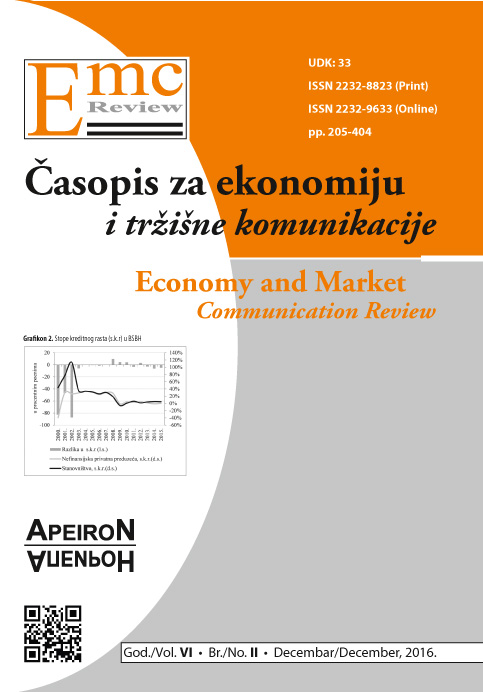BALKANIZATION OF MEDIA: RAMP ON THE PATH OF EUROPEAN INTEGRATION // BALKANIZACIJA MEDIJA: RAMPA NA PUTU EVROPSKIH INTEGRACIJA
DOI:
https://doi.org/10.7251/EMC1602380TAbstract
The dramatic changes in the political, social and economic transformation of Western Balkans countries have brought the tectonic disturbances in the earlier system of mass media operations in these societies. The process of worldwide globalization, a strong influence of the Internet and electronic communications, and development of new communication technologies had not brought the expected improvement in work of the media. On the contrary, after the traumatic experience of the nineties, the media in the Balkans show retrograde signals of closure, xenophobia, localism, and low professional and technological progress.
These negative processes in the field of media and information business significantly hinder the integration of these countries on the path to Europe, introducing the notion of Balkanization of the media in everyday media practice. Lack of understanding of the media business pushed the Balkan countries on the periphery of the global media scene. Bearing in mind the specific historical, political, economic and cultural patterns in this region, the media in the Balkans have become hostage to the ruling elite, and therefore were reduced to the function of the simple service to transfer messages without major contributions to the progress of societies in which they operate.
The only way out of this situation is a profound and radical transformation of the Western Balkans in the political, economic and cultural spheres, providing greater and more authentic contribution to European and world road to global society, which will create conditions for equal membership of these countries in the global society of the future. This transformation can be achieved by better education of employees in the media, better transparency of media ownership, magnification of media outlets owned by citizens (independent media) and greater technological literacy of the general population through systematic work in the educational system of these countries.
